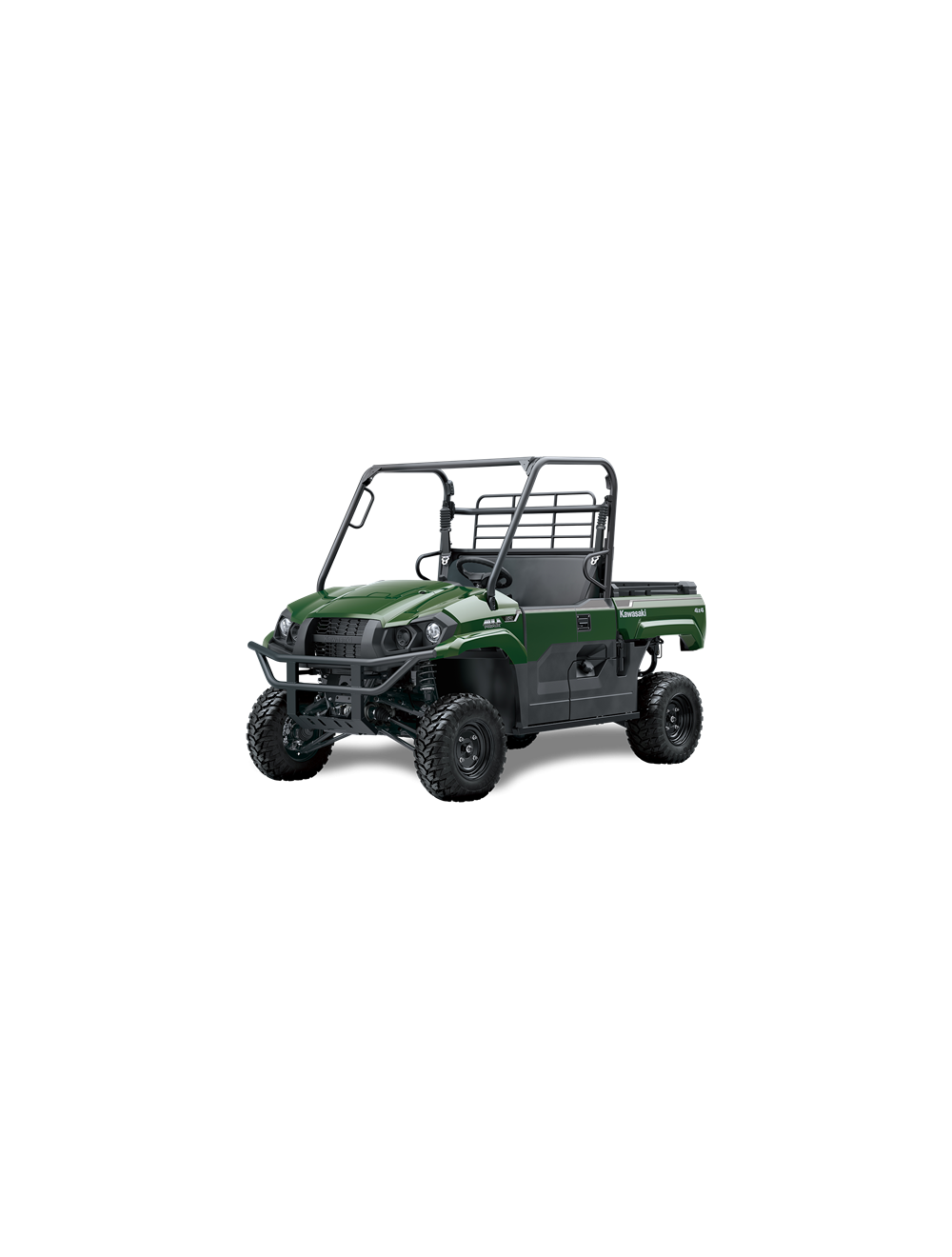Double-wishbone suspension is used both front and rear to enable each of the wheels to drive over obstacles with minimum effect on the chassis.
Mule Pro-MX
KL-Mule Pro-MX je homologovan i može se registrovati

- Engine type
- Liquid-cooled, 4-stroke Single
- Compression ratio
- 10.3:1
- Bore x stroke
- 102 x 85 mm
- Displacement
- 695 cm³
- Fuel system
- Fuel injection: Ø44 mm x 1 throttle body
- Ignition
- Magneto & transistor
- Starting System
- Electric
- Lubrication
- Forced lubrication, wet sump

- Maximum torque
- 57.6 N•m {5.8 kgf•m} / 5,000 rpm
- Maximum power
- 32.8 kW {45 PS} / 6,000 rpm
- Transmission
- CVT, 2 speed auto, reverse
- Primary Reduction Ratio
- 3.653 ~ 0.794 (belt converter)
- Primary drive
- Belt Converter
- Gear Ratio Forward
- 2.916 (35/24 x 36/18)
- Gear Ratio Reverse
- 3.750 (30/16 x 36/18)
- Final Reduction Ratio
- 4.000 (64/16)
- Final drive
- Shaft 2WD/4WD

- Parking Brake
- Auto adjust, mechanical
- Brakes, front
- Dual 186 mm discs
- Brakes, rear
- Dual 174 mm discs
- Suspension, front
- Double Wishbone
- Suspension, rear
- Double Wishbone

- Frame type
- Ladder type, tubular steel
- Wheel travel front
- 218 mm
- Wheel travel rear
- 232 mm
- Tyre, front
- 25 x 8.00 R12
- Tyre, rear
- 25 x 10.00 R12
- Steering angle L/R
- 43o (IN) / 38o (OUT),
- L x W x H
- 2,795 x 1,525 x 1,890 mm
- Wheelbase
- 2,005 mm
- Ground clearance
- 270 mm
- Fuel capacity
- 36 litres
- Seat height
- 850 mm
- Curb mass
- 719 kg
-
KEY FEATURES
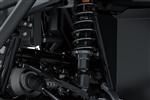
Independent Front & Rear Suspension
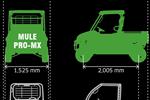
“Just Right” Size
Measuring 2,795 mm (110”) long and 1,525 mm (60”) wide, with a 2,005 mm (79”) wheelbase, the PRO-MX’s midsize package offers mobility and manoeuvrability that facilitate negotiating tight trails, while capably providing the carrying performance to make chores a breeze, or haul gear for a weekend in the Great Outdoors.
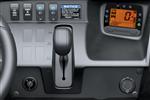
Automotive Dashboard Design
Like on the MULE PRO Series flagship models, an automotive-style dashboard puts all controls within easy reach. Digital instrumentation provides at-a-glance information. And the centre console comes prepped for an accessory audio system.
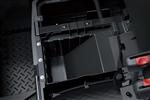
Storage bin
Storage bin (5.3 litres) located under the passenger’s seat offers convenient storage. A steel plate protects the storage bin from rock strikes.
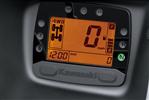
Digital Instrumentation
A multi-function display is built into the dash. Features include: driving mode (2WD/4WD) indicator digital speedometer digital fuel gauge clock odometer dual trip meters hour meter differential indicator lamp engine check lamp EPS warning lamp water temperature warning lamp seatbelt warning lamp parking indicator lamp reverse indicator lamp neutral indicator lamp
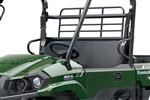
Contoured Bench Seat: Roomy Seating for Two
Complementing ample shoulder, knee and legroom for two adults, the bench seat features contoured seating for both driver and passenger, contributing to the PRO-MX’s superb comfort.
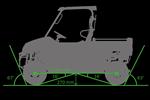
Favourable Off-road Dimensions
High approach and departure angles (67˚ and 63˚, respectively) also contribute to the MULE PRO-MX’s offroad performance. Minimising bodywork overhang (positioning the wheels as close to the bumpers as possible) reduces the chance of hitting the bumper or scraping the tail when going up or coming down steep slopes.
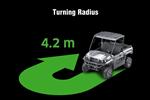
Short Turning Radius
Short 4.2 m (13.8 ft) turning radius makes it easier to negotiate tight corners in the woods or on trail courses.
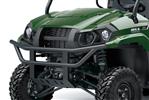
Tough, rugged styling
Designed to reflect their tough construction and capable performance, the MULE PRO-MX models feature new styling inspired by the rugged, no-nonsense design of the MULE PRO Series flagship models.
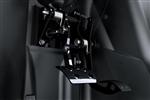
Electric Power Steering
Kawasaki’s highgrade electric power steering (EPS) system works best when you need it most: at extremely slow speed and when stopped. Turning the wheel causes a signal to be sent to the EPS ECU, initiating assistance. The ECU uses input from a vehicle speed sensor and torque sensor to determine the amount of steering assistance required from the system’s electric motor. At slow speed or when stopped, assistance is greatest; assistance is reduced as vehicle speed increases, tightening up the steering.

